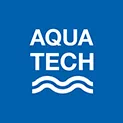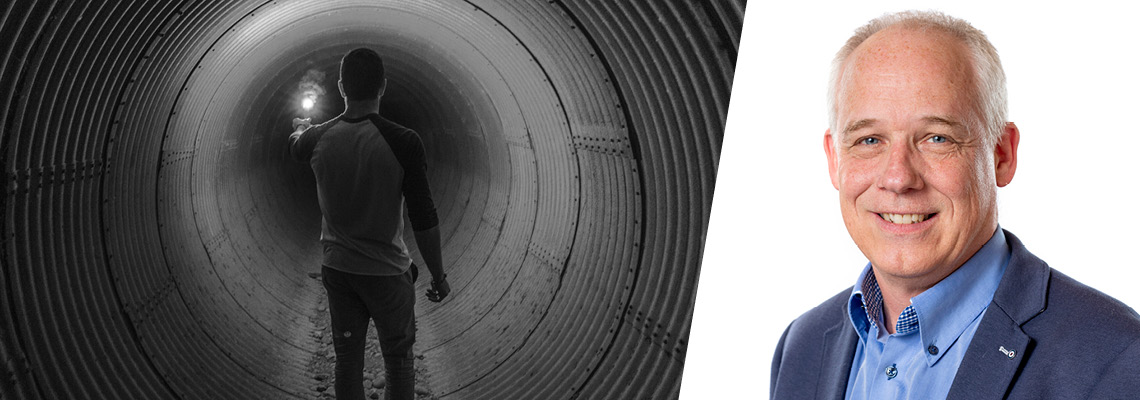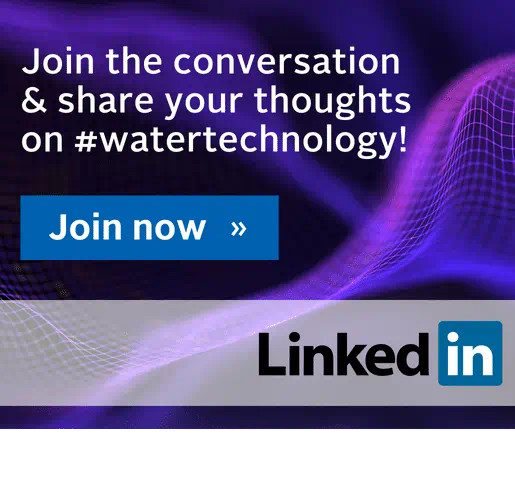Digital Twin aspirations could help speed up the development of “smart sewers” and help overcome the looming challenge of a soon to be retiring, ageing workforce. Tom Freyberg speaks to Aris Witteborg following the publication of a new white paper.
A holistic approach is needed
The implementation of digital twins (DTs) for wastewater infrastructure could help with one of the biggest challenges looming over the industry: an ageing, skilled workforce retiring.
Some water utilities are expecting to lose up to 50 per cent of their operations staff in the coming 15 years.
More than a technological exercise, creating a DT and its associated functionalities may impact how employees work and the way the business is structured.
A new white paper entitled ‘Digital Twins for Wastewater Infrastructure’ from Royal HaskoningDHV Digital addresses how digital twin technology can help to overcome these challenges and others, including increasing demands, climate change and sustainability targets.
Speaking to Aquatech Online, Aris Witteborg, white paper author and leading professional digital water, Royal HaskoningDHV Digital, said: “The main reason for adopting the digital twin concept is the fact that water utilities will lose a serious amount of cumulative experience through retirement in the coming years.
“The loss of experience involved is a serious threat to the current triple-A quality of the water services provided,” he said.
“Chief information officers understand that you can’t fix this with a patchwork of digital point solutions: you need a holistic approach.”
“And the chief information officers understand that you can’t fix this with a patchwork of digital point solutions: you need a holistic approach (the holistic digital twin concept) to keep the highly complex landscape of digitization manageable. And given the complexity, you need to start sooner rather than later, to be able to compensate for the loss of operations experience in time.”
Avoiding a “big bang” with DT development
Defined as a “holistic digital representation of the physical system”, or a “digital mirror of a real-world asset”, digital twins integrate emerging technologies, such as AI and the Internet of Things (IoT).
This allows companies to monitor the way infrastructures work now, test the impacts of changes before they’re made. They have the ability to help replace reactive maintenance schedules with predictive prevention and uncover opportunities that would otherwise have gone unnoticed.
Rather than a single piece of hardware or software, a DT comprises a layered approach.
This starts at the component level (such as a pump), at the process level (such as an aeration tank) and at the system level – in this case, the entire treatment works.
As a result, Witteborg said an “incremental development approach is much more sensible”, rather than developing a digital twin with a ‘big bang’ approach.
“Human element is key”
The report also covered the often neglected element required for digital transformation, including DTs: the culture.
“It is important to realise that implementing a digital twin concept is not just the technological exercise of designing and developing advanced new software applications,” it said.
A critical success factor in “operationalising the digital twin concept” and ensuring the workplace accepts changes, the human element is key, it said.
“Practice shows that a careful approach is required, and setting up and managing these change processes is a challenge in itself,” added Witteborg.
“All in all, successfully implementing the digital twin concept requires a gradual, long-term growth path. And as each utility has its own starting point and its own challenges and priorities, there is no such thing as a standard roadmap.”
“Smart sewers” will have their day
Digital twin progress in the sector can largely be witnessed in the drinking water side of the business.
The Spanish port city of Valencia is a well-known example, with the installation of 700,000 smart meters kickstarting its digital twin journey in 2007.
Meanwhile, an exact digital version of the Al Khobar 1 desalination plant in Saudi Arabia is being created, before its construction has been completed.
So will wastewater networks eventually play catch up, especially with the solutions readily available?
In a recent interview with Aquatech Online, Southern Water’s head of water asset strategy, Chris Lumb said that “smart sewers" will see significant development over the coming years.
“I expect that the digital twin way of thinking might lead to speeding up the development of specific smart sewer solutions.”
Witteborg believes the long-term aim of holistic digital twins will help speed up the development of smarter wastewater infrastructure.
“I expect that the digital twin way of thinking might lead to speeding up the development of specific smart sewer solutions – when there is a real business need for developing this smartness,” he added.
“Proof of concept”
Admitting that “digital twin thinking in general is in it’s very early stages in the Dutch water sector”, he said many proof of concept projects are being explored. This includes advanced control based on machine learning, BIM/3D in combination with virtual and augmented reality.
The consultant said it is helping to bring together different stakeholders.
“We already see that happening in The Netherlands, where the owners of the treatment infrastructure (water authorities) are working closely together with the owners of the sewer system (municipalities).
“They are co-developing digital solutions to optimize the operations and the maintenance of the wastewater infrastructure as a whole. This includes optimizing pumping regimes to optimize the hydraulic loading of the plants, while minimizing energy consumption.”
More information on the digital twin white paper can be found here.
Related content
- No-collar workforce: waters digital transformation
- https://www.aquatechtrade.com/news/utilities/goaigua-digital-twin-valencia/
- Desalination gets digital twin makeover
- Digital twins in water: What have we learned?
- Explore all our coverage related to wastewater







